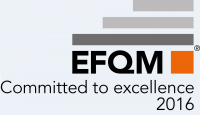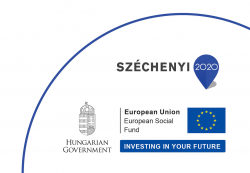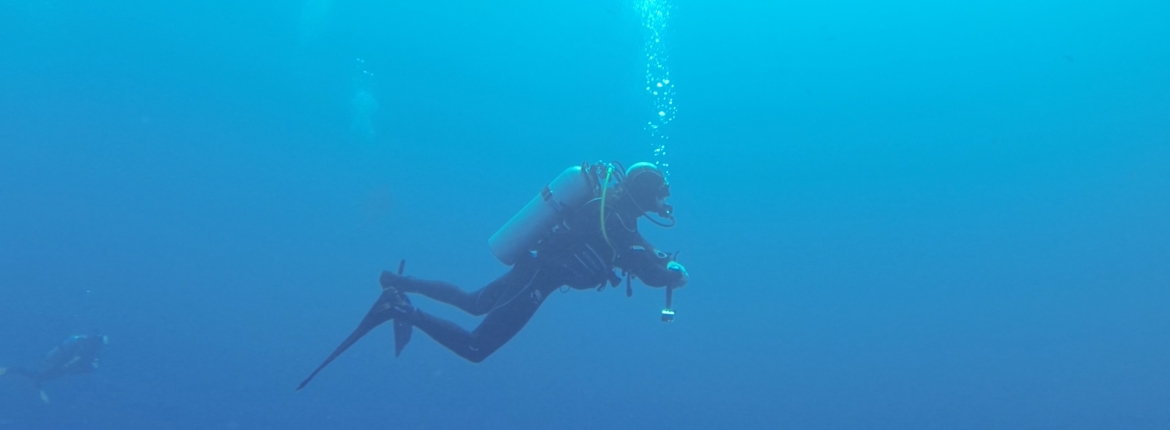
Diving in his Spare Time
Biologist Dávid Mucsi, graduate of the University of Szeged, spent a month doing research in Hermanus, South Africa. He observed sharks, measured their hormone levels and studied them with video traps.
David Mucsi graduated from the Faculty of Science and Informatics at the University of Szeged with the specialization of supraindividual biologist. In addition to the University of Szeged, he was a guest student at ELTE where he completed four marine biology courses. He wrote his thesis on the mandibular adaptation of cartilaginous fish species.
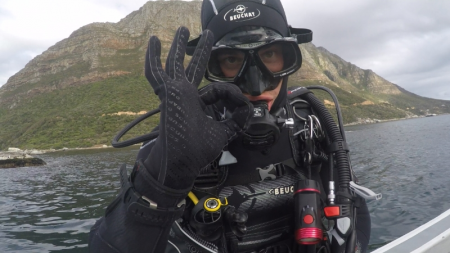
- You have chosen an interesting research topic and if we consider the fact that Hungary does not even have a sea…
- Sharks and rays have always been interesting for me since I was a child and the fact I was already doing scuba diving at the time when I had to choose the topic of my thesis helped me in making my final decision. In the beginning I was a little uncertain about the subject as it was hard to imagine how to do such research in a country with no access to any sea, but luckily, on the different social networking sites of research groups dealing with sharks, I spotted an opportunity for a trainee position a month in the Hermanus Shark Conservancy in South Africa. I applied and I got accepted a few weeks after.
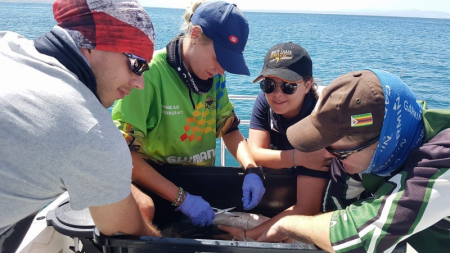
- Could you tell us about your experiences in Africa?
- The research centre is in a town in a fantastic bay about 120 kms away from Cape Town. The head of the South African Shark Conservancy (SASC), Meaghen McCord Gray, made it possible for me to deal with eight different shark species including the ‘big white’. We carried out morphometrical measurements and took DNA samples. I learned how to catch a shark and participated in some ongoing research, such as measuring stress hormone levels of sharks in the presence of sea-lion scent and assessing the population of white sharks living in False Bay. We placed video traps in the sea, which provided information about the diversity of local species. We also marked sharks. Apart from working on the site, we also focused on the documentation and analysis of the measured data. Once a week we took part in lectures where we got an insight into the work of guest lecturers supported by National Geographic and other recognised nature research firms. Weekdays were spent with work (sometimes even Saturdays, too). On the weekends, however, we went diving in nearby waters.
- What kind of prior education do you have in diving?
At the University of Szeged, Attila Cseh introduced me into the world of diving; I am grateful to him for the stable foundations. Currently I’m a Divemaster in the SSI diving system, and I participate in trainings as well along with András Rácz and Róbert John, who are acknowledged representatives of technical dives. My regular divesites include several points in the Adriatic Sea and certain safari routes in the Red Sea. I had the privilege get to the Laccadive Sea surrounding the Maldives, where I could dive with great manta rays and whale sharks.
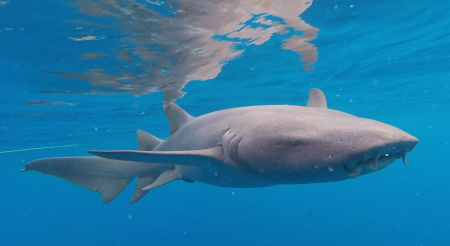
- What was your most exciting experience in diving or working in Africa?
- During diving, I met a huge variety of species, such as sea lions, chimaeras. During one of these tours, we went by boat further than the Cape of Good Hope to dive with blue sharks in the open waters. It was a fantastic experience to dive with white sharks: they swam a few meters ahead of us with their deep, pitch-black eyes. From the mainland, I saw hundreds of dolphins, whales, seals and once I met a baboon family. All that I saw, learned, experienced during these four weeks have added a lot to my present knowledge.
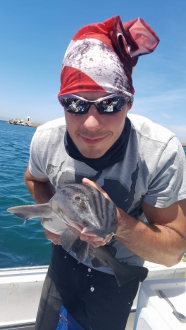
- What are your further goals and plans?
- Currently, I’m studying for my master’s degree at the University of Veterinary Medicine. I visualize shark ethology as my main research topic, which will hopefully contribute to the understanding of these wonderful animals.
Anna Bobkó
Photo: Dávid Mucsi






